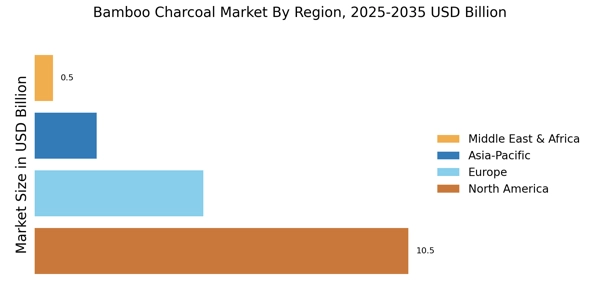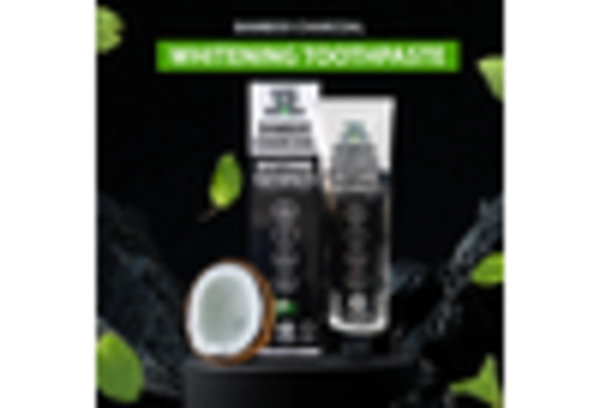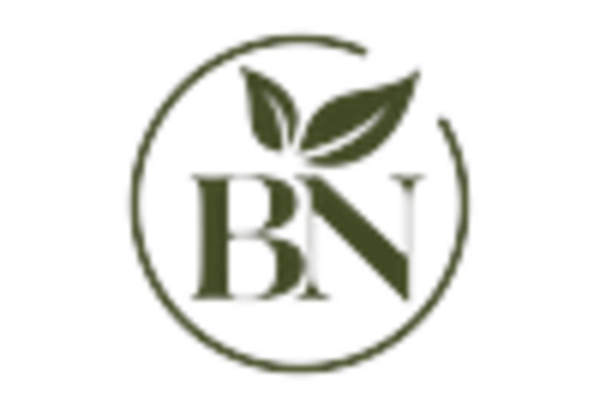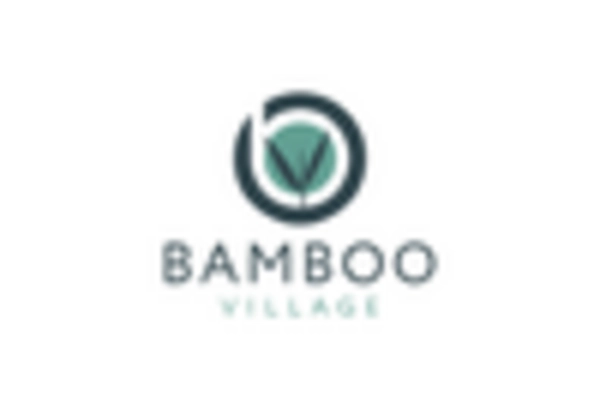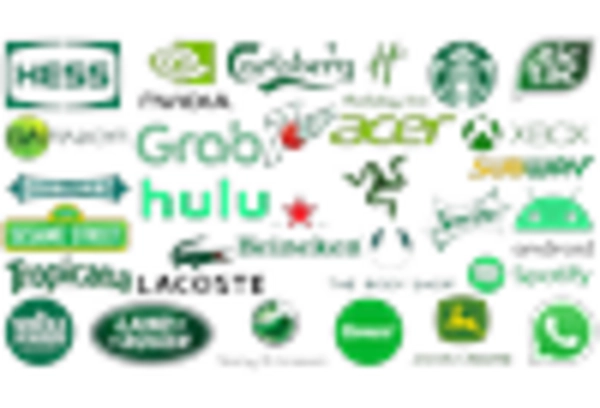Regulatory Support
Regulatory support for sustainable materials is becoming increasingly prevalent, positively impacting the Bamboo Charcoal Market. Governments and organizations are implementing policies that encourage the use of eco-friendly products, which includes bamboo charcoal. This support is evident in various initiatives aimed at promoting sustainable agriculture and manufacturing practices. For instance, certain regions are providing incentives for companies that utilize renewable resources, thereby fostering a favorable environment for the bamboo charcoal sector. Additionally, certifications related to sustainability and organic products are gaining traction, further legitimizing bamboo charcoal as a viable option for consumers. As regulatory frameworks evolve to support sustainable practices, the Bamboo Charcoal Market is likely to experience enhanced growth opportunities, attracting both investors and consumers who prioritize environmentally responsible choices.
E-commerce Expansion
The rapid expansion of e-commerce platforms is transforming the Bamboo Charcoal Market by providing greater accessibility to consumers. Online shopping has become a preferred method for purchasing a wide range of products, including bamboo charcoal items. This shift is particularly beneficial for niche markets, as it allows smaller brands to reach a broader audience without the constraints of traditional retail. Recent data indicates that e-commerce sales in the personal care and home goods sectors are increasing, with bamboo charcoal products gaining traction among online shoppers. The convenience of online purchasing, coupled with the ability to compare products and read reviews, is likely to drive further growth in the Bamboo Charcoal Market. As more consumers turn to online platforms for their shopping needs, the market is poised to capitalize on this trend, enhancing its visibility and sales potential.
Health Consciousness
The rising health consciousness among consumers is significantly influencing the Bamboo Charcoal Market. As individuals become more aware of the impact of their choices on health and well-being, there is a growing interest in natural and organic products. Bamboo charcoal is recognized for its detoxifying properties, which are believed to aid in purifying air and water, as well as promoting skin health. Market Research Future suggests that the demand for bamboo charcoal in health-related applications, such as dietary supplements and detox products, is on the rise. This trend is likely to continue, as consumers increasingly prioritize wellness and seek out products that align with their health goals. The Bamboo Charcoal Market stands to benefit from this shift, as it offers a natural alternative that resonates with health-conscious individuals.
Sustainability Initiatives
The Bamboo Charcoal Market is experiencing a surge in demand due to increasing sustainability initiatives across various sectors. As consumers become more environmentally conscious, the preference for sustainable products has intensified. Bamboo, being a fast-growing and renewable resource, aligns perfectly with these initiatives. The market for bamboo charcoal is projected to grow at a compound annual growth rate of approximately 10% over the next five years. This growth is driven by the material's eco-friendly properties, which appeal to both manufacturers and consumers. Companies are increasingly incorporating bamboo charcoal into their product lines, ranging from personal care items to home goods, thereby expanding the market's reach. The emphasis on reducing carbon footprints and promoting sustainable practices is likely to further bolster the Bamboo Charcoal Market.
Innovative Product Development
Innovation plays a crucial role in the Bamboo Charcoal Market, as manufacturers continuously explore new applications and formulations. The versatility of bamboo charcoal allows for its incorporation into a wide array of products, including air purifiers, skincare items, and even food additives. Recent market data indicates that the personal care segment is witnessing a notable increase, with bamboo charcoal being utilized in facial masks and cleansers. This trend is expected to drive the market's growth, as consumers seek multifunctional products that offer both efficacy and natural ingredients. Furthermore, the development of bamboo charcoal-infused textiles is emerging as a potential growth area, appealing to eco-conscious consumers. As companies invest in research and development, the Bamboo Charcoal Market is likely to see a proliferation of innovative products that cater to diverse consumer needs.



